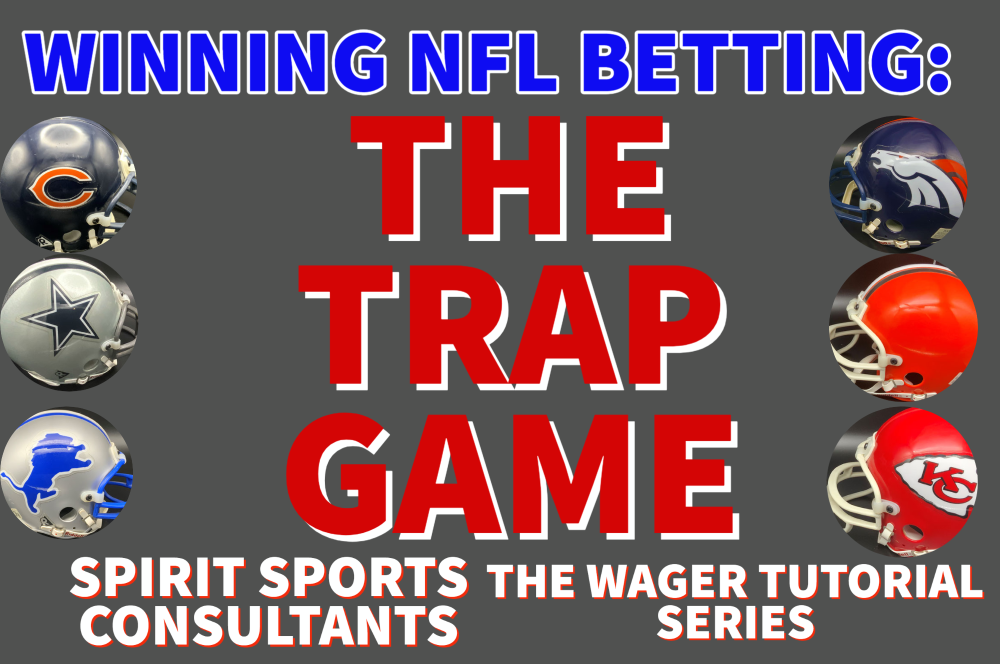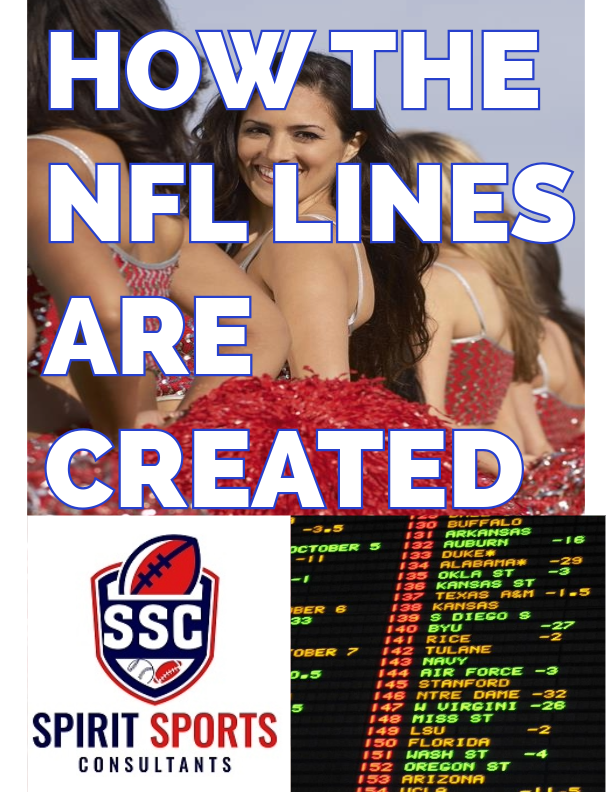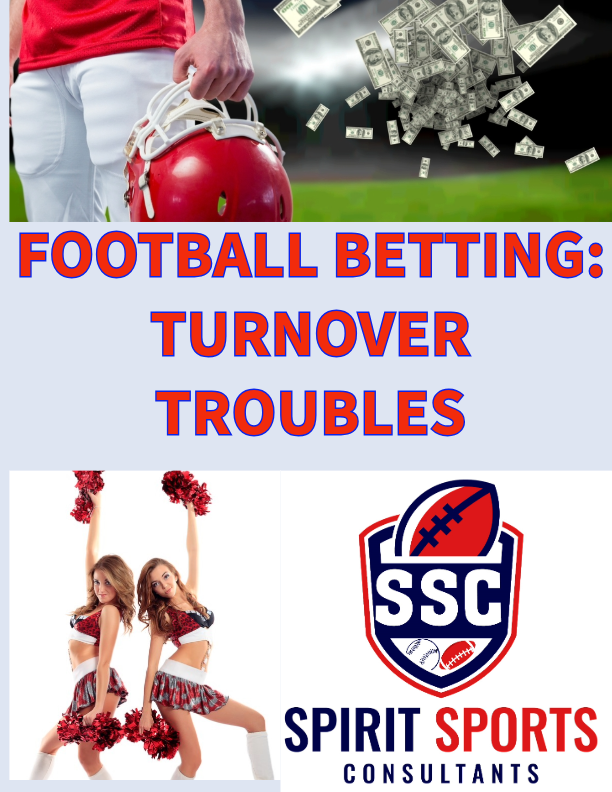



| FOOTBALL BETTING X-FACTORS | THE TURNOVER MATRIX | HOW THE NFL LINES ARE CREATED |
| UNDERSTANDING NFL TOTALS | UNDERDOG CORNER | WHATS THE GAME SET-UP? |

|
This our most in depth section with several different sub components within it.
For this rule, for most of the components of this analysis we must wait for the current week’s games to include.
The Setup keys on analyzing the most recent performances to identify possible changes in motivation or line value that could provide a great opportunity for a winning position.
This section attempts to analyze all of the factors that affect how teams go into certain games, and this is different from week to week.
In our opinion this component is the single most important factor in analyzing wager positions. The Set up is defined to us as the specific frame of mind each team has for the specific game. Much of the other analysis has to do with averages, trends, statistics and more tangible factors.
Many of you may refer to what we call the “Set-up” by different names: Trap Game, Letdown, etc. But we have identified a broader category of scenarios by which a team could be under-motivated or extremely motivated for a game.
Motivation is one part, but also the way in which a team is perceived can greatly influence the betting lines. So, if we pay attention to these set ups we can get great value on our positions.
To define this further, the SETUP attempts to identify the mental position that each team could be in as they approach a specific game.
As we explained in an earlier section, the games are not played on a computer for a reason. The variables, the x-factors, the unknowns in a football game are the things that make the game so great.
The assumption made in calculations, programs, and averages is that all performances are fairly even, predictable and static.
Our assertion is that each game needs to be properly analyzed to better determine the frame of mind of the players, coaches and the team to best determine how their performance might vary from the norm.
The SETUP section falls in the broad category of Motivation which, as we have stated, is one of the most significant factors impacting the outcome of games.
These motivation factors can be both positive and negative. There are factors that will cause a certain team to perhaps ease up, and then other factors that provide significant motivation to a team for perhaps over-perform the following day
Probably the most important factor in evaluating possible wagers is identifying one of these ideal setups from the previous game’s results.
In all of the years that we have followed football, one thing that has continued to amuse us is the overreaction that the public and odds makers make on an unusually strong performance.
Several times blowouts or bad performances are based on bad turnover games (See Turnover Matrix section), special teams plays or just other fluke type plays.
It is very important to check more than just the outcome of games. You need to dig deeper and identify what the true performance of a team was before jumping to conclusions.
The Key Set up factors that we have identified are as follows:

|

|

|

|
The Letdown Game:
The letdown is the psychological effect that impacts teams coming off a big win.
Any win will likely have some degree of a letdown effect but certain wins create a bigger impact than others. Some examples of big wins include a big road win, or a win against a division or other hated rival.
This wins creates a significant letdown.
The entire point of this rule is to understand the human element, the natural ebb and flow of a season and to understand that not all games are played on a level playing field from the standpoint of motivation and preparation.
We used to apply a rule in which we sought to wager against any team coming off of a win, but we realized that was too extreme. In revising our strategy, we identified a number of situations in which a team is most likely to have a letdown after a big win.
Win over a Division or Conference Rival:
Shifting back to the NFL, let us use a hypothetical example of a team coming off of a hard-fought division game.
Pittsburgh and Baltimore have been tough, bitter division rivals who play twice a year and, in several years, have also faced each other in the playoffs.
Let’s say it is Week 10 and Pittsburgh plays Baltimore at home and wins a tough back and forth affair, 17-14, taking first place in the division with a 7-2 record.
For the Steelers, the following week (Week 11), they travel to Atlanta to play the 4-5 Falcons.
The coaching staff will tell you that their players are focused and locked in to play a game that everyone expects them to win.
But think about it logically, think about how emotions come in to play. In this case, overconfidence.
No matter what the players tell reporters, or what the coaches say publicly will I ever believe that the team is equally prepared for this game as opposed to the game that could have decided who wins their division.
Do you really think the Steelers in this example would be completely locked in and focused?
For all that the coaches try to tell themselves, their players, and the media otherwise, they gear up differently for key rivals than they do for other opponents.
There is a good chance that for these key rivals, they reserve special plays, different formations, and a little bit something extra for this important game. For the other games, they are less likely to do it, not saying that it cannot happen.
And continuing the Pittsburgh-Baltimore example, we would expect the teams to be physically exhausted as well. The Steelers and Ravens are known for their physical style of play and we would understand if the players are drained after this game.
This is an opportunity to get value on the underdog, especially if the Falcons in this example were coming off of a loss. The betting public would see the 7-2 Steelers as far superior to the 4-5 Falcons and would ignore the fact that the Falcons would be at home and the less obvious fact that the Steelers are most likely not 100% ready for this game.
This example was obviously a divisional matchup, but we also see letdown risks for team playing a major conference rival.
An example of this would be if any team in the AFC plays and beats the defending champion Kansas City Chiefs.
For 2024, the Ravens and Bengals play the Chiefs in Weeks 1 and 2 respectively, and if either team wins over the Champs, we would highly expect them to not be 100% ready for their next opponent.
We, too, if we were in that situation would celebrate a lot at the local establishments and start to think that we were the sh*t after defeating the Chiefs.
Simple human nature.
BLOWOUT VICTORY:
The second scenario in which we have seen a letdown is a team coming off of a huge blowout victory.
And think about this one logically also: if your team just kicked the sh*t out of your opponent, isn’t it logical that as a team they start thinking that they are invincible and can beat anybody.
Another prime let down situation occurs for a blowout win. Let’s use the Texans as the example here.
In Week 12 the Texans play the Jaguars at home and with their ferocious pass rush they force 5 interceptions culminating in a 35-10 win.
The following week they play a division rival on the road and will more than likely be under prepared for their opponent in their overconfidence.
Now, the challenge for the coaching staff is to keep the team motivated for next week, and levelheaded. More often than not, the team has difficulty recognizing that their win was turnover-fueled and not a true blowout and gets an exaggerated sense of self.
2023 Example: 70-20: Denver Broncos at Miami Dolphins
We use this game as an example in all of our books because it is a great example of how a positive win can have a negative impact on a team for the remainder of the season.
(We also regret the fact that we had tickets to this game, but did not want to sit in Miami heat for a September day game. Instead watching the game from the climate-controlled comfort of the Hard Rock Casino and Sportsbook in South Florida)
In this game, the Dolphins truly dominated both in the air and on the ground scoring several long touchdowns and looking everything like potential AFC champions.
Clearly, after this game the Dolphins would, and should, be favored in most of their games for the remainder of the season.
We mentioned in one of our other books, How the NFL Lines are Created, that oddsmakers use team’s full season scoring averages in their line calculations.
What this game did was to seriously INFLATE Miami’s scoring average and then also artificially inflate Denver’s defensive numbers.
This meant that the Dolphins lines would be overvalued by 2-3 points a game for the remainder of the season and the Broncos would be similarly undervalued.
That is one part of the problem with a blowout win such as this, but we are mostly talking about the psychological and motivational components to this blowout win.
The Dolphins win this game in very impressive form, but there were a few key points to take from this game if one was really paying attention:
Unmotivated Defense. The Broncos’ defense was in shambles, and not playing with any motivation. After this game Sean Payton made several personnel changes and the defensive play improved significantly
The Weather. Seriously, to be fair they simply should not play September games in South Florida. For a team from Colorado to play in September in Miami where the humidity will just drain you, is simply unfair. If you watched the game, you could almost see the point where the Broncos collectively said “F*** it, this isn’t worth it”
Our point here is that the Dolphins were not truly 50 points better than the Broncos, and that this game was a true outlier.
So, the next game up for the Dolphins after this blowout win was against the Bills in Buffalo. Any guesses as to how that game turned out?
Oh yeah, the home Buffalo Bills just shredded the Dolphins in a game that was not as close as the final score of 48-20.
The lesson here is to pay attention to teams coming off a blowout win, especially if their next game is on the road. There can be great value picking against them in this scenario.
We focus mostly on NFL matchups in our books but this rule is especially consistent in college football.
This is to be expected as college players are less mature and experienced and we would understand if they party too much after a big win and simply are not as prepared for the following week.
The reason could be fairly obvious; with the NFL you have veteran professionals who are less likely to emotionally overreact in one way or another.
College players, on the other hand, are 18–22-year-old young men who are more apt to get more emotionally high or low based upon a key game.
For a College football game, if you see a team blowout another team, especially one that is a non-ranked out of conference team, then look to bet against the winner the following week.
How to apply: Consider any win as a potential letdown for the next game. Consider a division/rival win or blowout win as a potential double letdown
The "Bounce Back" Game:
The Bounce back is simply the opposite of a team coming down with a letdown. The bounce back is the team that lost coming back with a little more motivation for the next game. There is really nothing complicated here, but trust us, it is worth following.
Again, this is simple psychology at work, but when a team loses a game, it becomes that much easier for a coach to motivate them and also for the team to motivate themselves to play better the next week.
Now before this is dismissed as an over-simplification, we want to quantify that we do not necessarily mean to suggest that all teams will play better after a loss.
For this we are looking for good teams that are coming off a subpar, crappy performance. In 2023, the Detroit Lions got crushed at Baltimore 38-6. The passing Lions were playing the second straight game on the road against the top seed in the AFC with winds gusting up to 30MPH
Coming back home after this embarassment, the Lions proceed to defeat the Raiders the following week, covering the 7 point spread with a final score of 26-14.
Casual fans who watched the Lions get embarassed by the Ravens could easily conclude quite simply that the Lions suck. And while that is true, it is true only for that single game. The truth is that the Lions were a good team that had a horrible game. And good teams know how to regroup.
On the other hand, very often there are games in which one team simply annihilates another team because they are that much better, or the losing team just sucks.
Yeah, sometimes a team is just that bad, and a bounce back is not going to happen.
We want to identify scenarios in which the game could have been won, but wasn’t, or a team lost a game that wasn’t all that much of a surprise (losing on the road for example to a higher rated opponent).
Lookahead Game
The lookahead game is the opposite of a letdown game.
The lookahead is a category of a trap game in that it is a key matchup with a division opponent or conference rival being played the game after the current game.
Many times, if a key matchup is scheduled for the next week, a team will look ahead to the next week and not focus on their current opponent.
Despite what coaches and analysts say all games are NOT created or valued equally.
Yes, all victories count the same in the standings, but teams want to focus doubly on defeating division opponents because wins in the division help with tiebreaker scenarios and therefore are more valuable than non-divisional games.
Look no further than the 2023 Miami Dolphins. The Dolphins had a multiple game lead over the Buffalo Bills heading into the final week of the season when they hosted the Bills.
The loss against the Bills resulted in them tying the Bills at 11-6, but due to the fact that the Bills had the tiebreaker the Bills won the division accordingly.
The result, the Dolphins had to travel to Kansas City and face Mahomes, whereas the Bills got to host the Pittsburgh Steelers.
Division games simply matter more.
To identify a lookahead game, obviously it is important to be very aware of a team’s schedule so that you can identify a lookahead risk.
We advise that you always look one week ahead anyway to go ahead and calculate expected lines for the following week, so make a schedule review a part of the weekly process.
The Trap Game
We have already discussed three variations on the trap game (LetDown, Bounce back, and Lookahead) in earlier sections.
For this section we want to discuss a combination of two factors for any one game. This becomes an ideal wager selection as we are almost certain to get great value on one side.
Going in to the 2024 season, let’s preview the schedule of the Miami Dolphins to identify a game that we see as a complete trap game (at least from the Miami side)
We already mentioned how the Dolphins had lost the AFC East title due to a tiebreak with the Buffalo Bills so the Bills clearly are on the Dolphins radar for this season.
The Dolphins host the Bills in Week 2, and then prior to that they host the Jaguars in Week 1.
The Jaguars are one of those under achieving teams but still with a great deal of talent, they are also conditioned to Florida heat and humidity.
We would expect the Dolphins to not show their entire playbook against the Jaguars as they prepare for a short week and their Thursday game against the division rival Buffalo Bills.
Staying with the Dolphins, we see them having to travel all the way across the country after playing the Bills to face Seattle.
Seattle is a playoff-caliber team with a great home field advantage which the Dolphins may not be ready for, especially if the Dolphins score a big win over the division-rival Bills
The Houston Texans were a surprise team in 2023, going from Worst to First to win the AFC South division.
Looking at it more critically, they barely beat the Indianapolis Colts in the final week to win the division and now have to open at Indianapolis to open the season.
From solely a talent perspective, the Texans appear to be far more talented than the Colts. But the Colts have home field and ae a bitter division rival out for a little bit of revenge for last season.
For the Texans, this game is likely not as important as their Week 2 game vs the Bears when they host on Sunday Night Football for the first time in 5 years.
Playing the Bears and hyped rookie Caleb Williams could very well cause the Texans to overlook the Colts and their potential star Quarterback Anthony Richardson.
These are a few examples of types of games that we see as being Trap games. To summarize a trap game to us, it is a matchup in which the favorite and team that is perceived to be better may not be focused on this matchup for a combination of factors as noted earlier.
This is the end of the Free Sample for our Whats the Game Set-Up publication. For the full version, it is available to purchase in SHOP or on Amazon.com
With the rules that we have provided above, along with our other 4 rules for Winning Football Betting, we are confident that you can beat the books and have a great season.
Look out for our other releases in which we discuss the other rules including:
Rule 1: Love Your Underdogs
Rule 2: The Trouble with Turnovers
Rule 3: X-Factors (Intangibles)
Rule 4: Primary Offense (Yardage Stats)

|